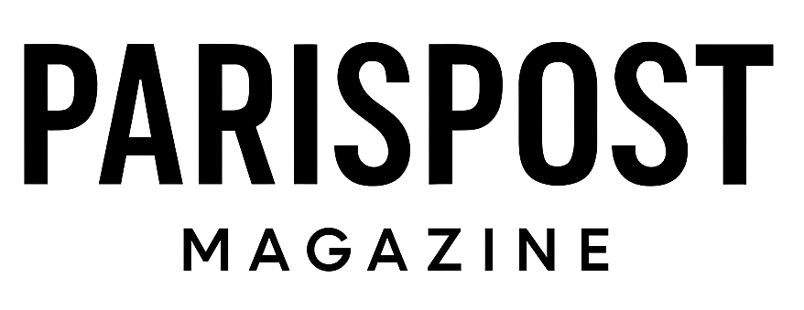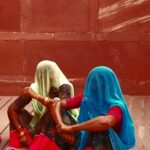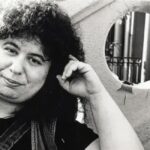After a light drizzle, the air had turned a bit chilly, but the fear and panic in the atmosphere remained at its peak. The markets, alleys, streets, crossroads — dread seemed to be pouring down everywhere.
When Empathy Travels Quietly in the Passenger Seat
Though no confirmed case of the disease had yet surfaced in the area, a pall of fear and apprehension had already seized the air.
Lockdown emerged as the sole weapon in humanity’s arsenal, wielded across the globe in a desperate attempt to halt—or at least diminish—the relentless spread of the virus by severing the threads of public interaction. What began as a phase of moderate curbs soon gave way to a stern and sweeping closure, bringing the rhythm of daily life to an eerie standstill. Schools fell silent, parks lay deserted, shops shuttered their hopes and the once-busy roads stood hushed, stripped of their ceaseless hum.
“Sir, could you drop me a bit ahead, please?” A boy of about ten or eleven came running toward me just as I brought the car to a halt at the Salani Police Checkpost.
“Sir, if you can, please take him along. The little rascal has been wandering around since morning. We’ve shooed him off a dozen times, but God knows what he’s made of—he keeps coming back. Even the stick has no effect on him,” grumbled one of the policemen standing near the barrier, half-cursing, half-pleading on the boy’s behalf.
The boy, fair-skinned and frail, appeared sharp, though perhaps not as quick-witted as he seemed. Dressed in a pale blue kurta and pajama, he quietly, timidly, slipped into the front seat, his body curled inward. Whether out of a desire to appear mature or due to shyness and hesitation, he sat with a mechanical stillness, eyes fixed straight ahead. It seemed as though he was exercising the utmost caution, fearful that any childish impulse or awkward slip might betray him.
After driving a few kilometers, I turned on the radio to avoid boredom. Though his gaze remained fixed straight ahead, his attention was on me — watching every move. With a slight twitch, almost a sidelong glance, he peeked at the infotainment screen and then froze in place. For a fleeting moment, I fancied him a spy. The radio crackled with news, and he listened intently, as if he understood it all. When the news gave way to music, he cast another quick, slanted look at the screen. His face hinted that he liked the tune, but he restrained himself from saying anything or showing any reaction.
I’d brought him along on a whim, but now I was quietly regretting my foolishness. Caution demanded I avoid contact with strangers. Who knew if he’d brushed against someone sick and was now, knowingly or not, passing the virus’s grim gift to everyone he met?
A little later, I turned the music off. Without a flicker of response, he kept staring through the windshield
“So, kid, where do you need to go?” My tone stayed sharp.
“Sir, where are you headed?” he responded — his first words since getting in the car.
“I’m going to the city… And you?”
“I’ll go to the city too, sir.”
“Why are you going to the city? Don’t you know what the situation is? Don’t you realize there’s a lockdown everywhere?”
“Sir, I had to go — it was urgent….. My mother’s medicine has run out. She’s ill,” he said, timid but desperate.
Hearing the word “illness” turned my irritation into concern.
“What happened?” For a moment, I wanted to slam the brakes and toss him out, but I controlled myself.
She used to have knee pain, but now it’s gotten worse. She… she can’t even walk anymore,” he explained, his tone carrying the weight of an adult’s concern.
I sighed in relief, it wasn’t a contagious disease. The anger and resentment brewing in my heart now turned toward his parents instead of him.
“Wasn’t there anyone else at home? Any elder?”
“No, sir. My elder sister was injured when Chaudhry’s bull gored her. And my brothers are too small….they are younger than me.”
“And your father?”
“He’s not with us. He died last year …..there was a bus accident….you remember….. while returning from the city, he didn’t make it” he said, looking out of the window, without much emotion.
I thought I’d keep chatting with him until I found a good excuse to drop him off somewhere ahead.
“Do you go to school?” I asked to keep the conversation going.
“Yes, Sir Ji,” he, suddenly, shifted from calling me "Sahib" to "Sir."
“What class?”
“Sixth, Sir Ji.”
“You know there’s a dangerous disease spreading around the world?”
“Yes, Sir Ji, a very dangerous one. It’s reached England, New Zealand, Italy — everywhere. And Sir, the most people have died in America because of it.” Noticing the softening in my tone, he began speaking more openly.
“Well, you’re quite updated!” I said, half impressed, half sarcastic.
Whether he took it as praise or a jab, I couldn’t tell —but a shy flush crept up his cheeks, blending with a faint smile that spread across his face. Then, just as quickly, he straightened up, wiping the expression away.
“It’s spreading more in rich countries, Sir Ji.”
“Hmm…”
The corona infection, fastening its grip on the world, had unleashed terror across every corner. It spared none, igniting fear in the hearts of rich and poor, men and women, young and old, black and white, from East to West, without exception. Millions of lives had already been lost, and each day swelled the tally of the afflicted. A tiny virus had rendered humanity helpless. Young as he was, the boy seemed fully aware of it all.
Millions had already died, and each passing day brought an alarming increase in cases. A tiny virus had rendered humanity helpless. The boy was young, but he understood the situation well.
“And there’s no medicine for it yet, Sir Ji.” He added.
“Who told you that?” I asked dryly.
“Grandmother told me, Sir Ji.” He said, speaking freely now.
“Who told your grandmother?”
“Maybe Master Ji did… He came to our house once before the school closed. Maybe he told Dadi and Mama then that there’s no medicine for it.”
“Oh really?”
“Yes, Sir Ji, my grandmother says no medicine can cure this disease. Only prayers can."
“Hmm…”
“She prays for everyone.”
“That’s nice!”
The wind picked up and the sky began to clear. The clouds had nearly vanished. Some patches of the road still looked wet, making the asphalt appear like graphite. I rolled up the windows, slightly increased the speed, and started to enjoy the drive. The atmosphere on both sides of the road was now crystal clear. The snow-covered peaks and slopes of the Pir Panjal range seemed close and distinctly visible. The nearby villages, kissed by the rain’s soft touch, looked even lovelier.
People neither considered stepping out appropriate nor safe, so traffic was minimal. Occasionally a lone vehicle would pass by, but mostly the road was empty.
“Sir, the disease hasn’t reached the city yet, right?”
“Not yet,” I replied indifferently.
“Dadi prays for the city too.”
“Good”
“Who’s in your family, Sir Ji?” He began crossing boundaries now.
I ignored his question, so he quickly asked another to mask his embarrassment.
“Sir, has oil become expensive?”
“Which oil?”
“This …..petrol, Sir Ji.”
“Oh, yes… But what does that matter to you? And who feeds you all these news?”
“No Sir Ji…” he grew a little embarrassed again, “...at the checkpoint where you picked me up, the policemen were talking among themselves about it.”
“This road’s quite good now, Sir. It used to have a lot of potholes, just like the road to our village,” he changed the subject.
“Does the road go all the way to your house?”
“No, Sir Ji, just up to the school. Even to the madrassa (Islamic school). Our house is a little uphill, slightly away from the road.”
Getting no response from me, he fell silent for a while.
“Sir, if this disease doesn’t stop and keeps spreading like this — what will happen?” After a while, the little chatterbox in him stirred again. But this time, I truly had no answer to his question.
“No, no, it won’t be like that. In time, the disease will fade. They will find a vaccine” I said, giving way to a fast-approaching car behind me. I said, dodging a speeding car from behind while tossing him some vague reassurance.
“But Sir Ji, how many people will die by then!” He was talkative, sure, but wise beyond his years.
“That’s true,” I nodded.
Sunlight danced with the towering pines and oaks lining the road, though a faint chill lingered in the breeze. As we passed through the dense forest, I unconsciously eased my foot off the accelerator, slowing the car. But the little forest ended in minutes, and just past the next bend, the road spilled into a wide, open square.
The square buzzed faintly with life—a few shops and a lone restaurant stood open, people drifting in and out almost normally. A handful of individuals wore masks or wrapped their faces with scarves and mufflers, but most were free of any such precautions. Near the mosque, a small mountain stream trickled, where two or three men were performing their ablutions. Maybe the lockdown had been relaxed a bit to allow people shop for essentials.
I parked in front of a shop along the curved row, where a smattering of vehicles—a car, a bicycle, a few motorcycles—dotted the makeshift parking area. The boy slipped out slowly, stepping aside to stand quietly. Just then, the call to prayer echoed, and he turned toward the mosque. The boy eased the door open, stepped out of the car, and stood to one side. Just then, azaan, the call to prayer echoed, and he turned toward the mosque.
“Do you pray?” I asked while locking the car, just to draw his attention.
“Yes,” he replied immediately, pulling a cap from his pocket and spreading it on his head.
“Would you like some tea?… Come on, let’s grab a cup first, then you can pray,” I said casually, walking towards the restaurant.
“No, Sir Ji, I won’t have any… you go ahead… I’ll go pray and be right back,” he replied politely, making his way towards the mosque.
I had already decided to drop him here and was just waiting for the right moment. He had just made it easy for me.
“One cup, but quickly,” I told the waiter.
The tea was good. I fetched my flask from the car, handed it to the vendor and asked for two more cups to fill it.
For a split second, I thought of the boy’s and the scarcity of rides. But then I shrugged it off—he’d find someone else. I’d brought him this far; someone else could take him the rest. “It’s not my responsibility,” I told myself firmly.
For a moment, I thought about the boy’s plight and the lack of transport. But then I shrugged it off, consoling myself — he’d find someone else. Just like I brought him here, someone else would take him further. “After all, It’s not my responsibility,” I thought resolutely.
“When it’s ready, just bring it to the car. And make it quick,” I paid for the tea and stepped outside.
The wind was stronger now. I paced around for a while and then got into the car to wait for the tea.
Sir... just a minute, please!" the boy came running from somewhere and stood, almost glued to the car.
"Finished your namaaz (prayers)? That quick?" I asked, surprised.
"Yes... I mean, almost. But sir, can you wait a moment…… but I have just a little more to do… will you wait?" There was a pleading softness in his voice.
"What's the matter? If you're done praying, come sit in the car." Of course, I said this just out of formality — I had no intention of taking him along again.
“Well… I just wanted to make one more dua (prayer)…” he said hesitantly.
“Why? Didn’t you do pray during namaz?”
“No, no Sir Ji… I did. I prayed for myself, for you… for the whole country. But…”
“Wow, impressive!”
“No… it’s just that… I forgot to pray for America and Italy… and that’s where the disease is worst right now… so… can I go pray for them?” his voice soft with humility.
Against my will, I stayed rooted there, waiting for him. A few minutes later, he dashed back, opened the door gently, and slid into the seat beside me, curling up quietly.
“Let’s go, sir!” His young face glowed with boundless peace.
Looking at him, for a fleeting moment, I felt as if the world’s deadly virus had begun to loosen its grip.












